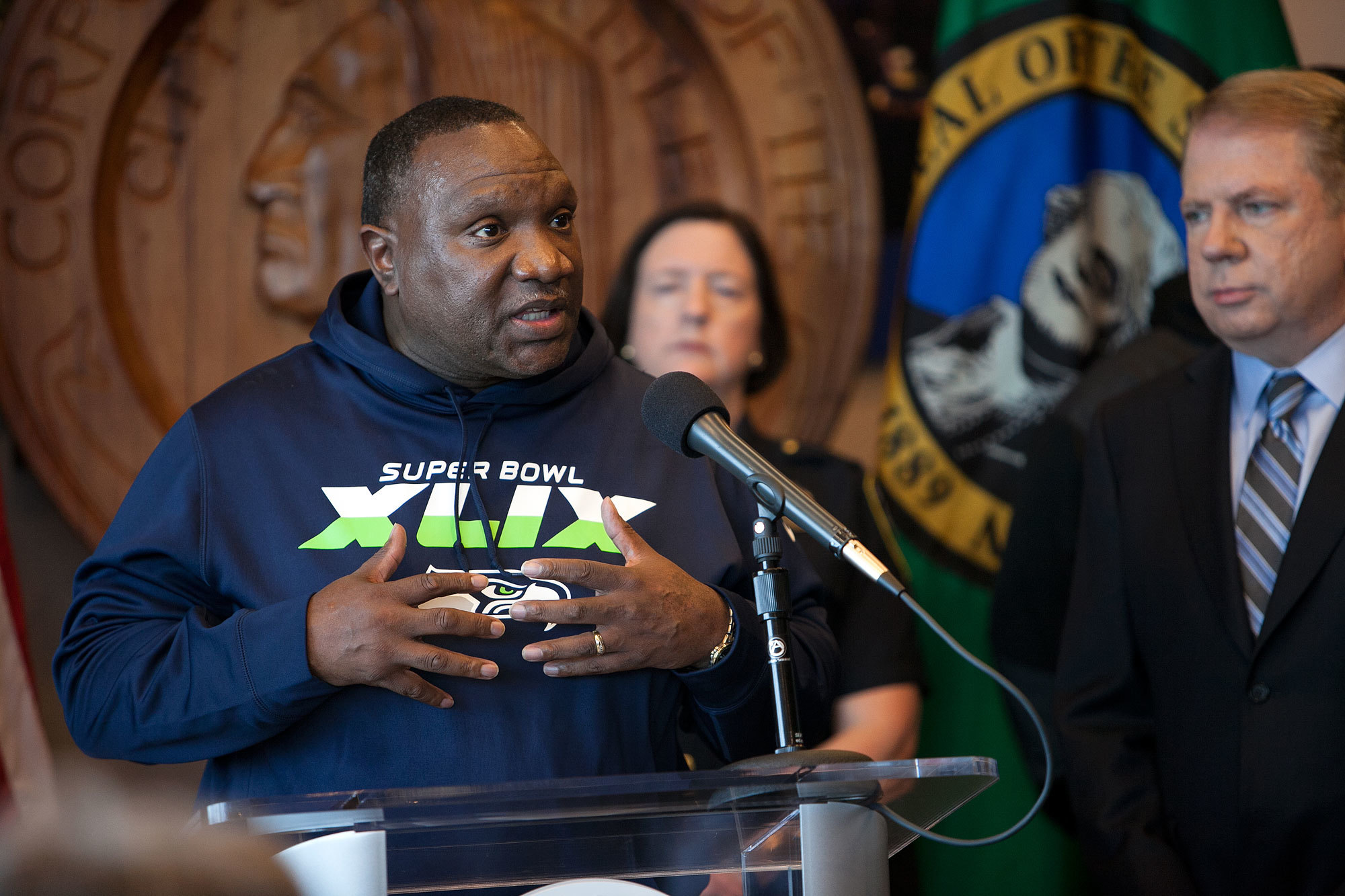On Thursday night, while Seattle and cities across the country reeled from and reacted to two more killings of black men by police, a shooter in Dallas opened fire on the police officers who were present at a demonstration there. Five officers were killed; seven were wounded. The suspect, according to Dallas police chief David O. Brown, “stated he wanted to kill white people, especially white officers.”
For the second day in a row, Seattle Mayor Ed Murray held a press conference to address the violence, accompanied by Seattle Police Chief Kathleen O’Toole, Reverend Lawrence Ricky Willis, and Urban League of Metropolitan Seattle president and CEO Pamela Banks. The speakers were ringed by a line of community members, city staffers, and police officers.
“Today, there is anger and uncertainty and bitterness and fear among the black community in Seattle, among our law enforcement officers, across this city and across this nation,” said Mayor Murray. “This is both a pivotal and dangerous moment in our history. How we choose to respond will determine our ability to come together as a city and a nation.”
Like the speakers who followed him, Murray reiterated that violence leads to more violence. “Violence will not resolve our hurt,” he said. “It will not resolve our feelings of helplessness and feelings of frustration. Violence is simply tearing us apart…. and will not heal the wounds of racism.”
Reverend Ricky Willis, president of the United Black Christian Clergy, stood at the podium, his eyes wide and voice raw. “I’ve had very little sleep in the last couple of days,” he said. “Being a father, being a husband, being an African American man, my heart is heavy, my soul is hurting, and the communty is hurting.”
He attended the rally at Westlake Park on Thursday evening, which was “a good rally,” he said. “After having a rally like that, to hear of a shooting and murders of officers was very disheartening. I can’t even imagine…” His voice trailed off, choked up. “This is difficult,” he said, taking a ragged breath. “One of the things I know is violence begets violence. We can’t continue to hurt one another.”
“This is certainly the most challenging time in policing since I’ve been in service,” said O’Toole, who had been at a meeting at the Department of Justice in Washington, D.C., on Thursday, and spent time discussing the week’s tragedies with DOJ staffers, White House staffers, and national civil rights leaders. She confirmed that following the Dallas shooting, all Seattle patrol and parking officers will be working in pairs.
“With every challenge comes an opportunity,” she said. “It’s so essential that we work together to get it right,” adding that she hopes that Seattle Police Department will be able to “set an example that others can follow. The SPD was well on the road to reform prior to Ferguson and other national tragedies… Do we have room for improvement? Of course we do. We still have a ways to go. [But] we’re already down that road when others are contemplating where to start.”
A divisive Tweet posted late Thursday (and removed Friday) by the Seattle Police Officer’s Guild (SPOG), the police union that is currently in private contract negotiations with the city, read, in part, “the hatred of law enforcement by a minority movement is disgusting…#Weshallovercome.” Asked about the Tweet, O’Toole said that she hadn’t seen it and didn’t know what its intention was.
“I’m here to build bridges,” she said, “Not to drive wedges. I’m not going to defend it; I’m not going to comment on it. I don’t want to feed into division between the police and the community. I stand here as the police leader in this community, deeply committed to work with the community. That’s what I’m telling you as police chief. I’ll let SPOG speak for themselves.”








